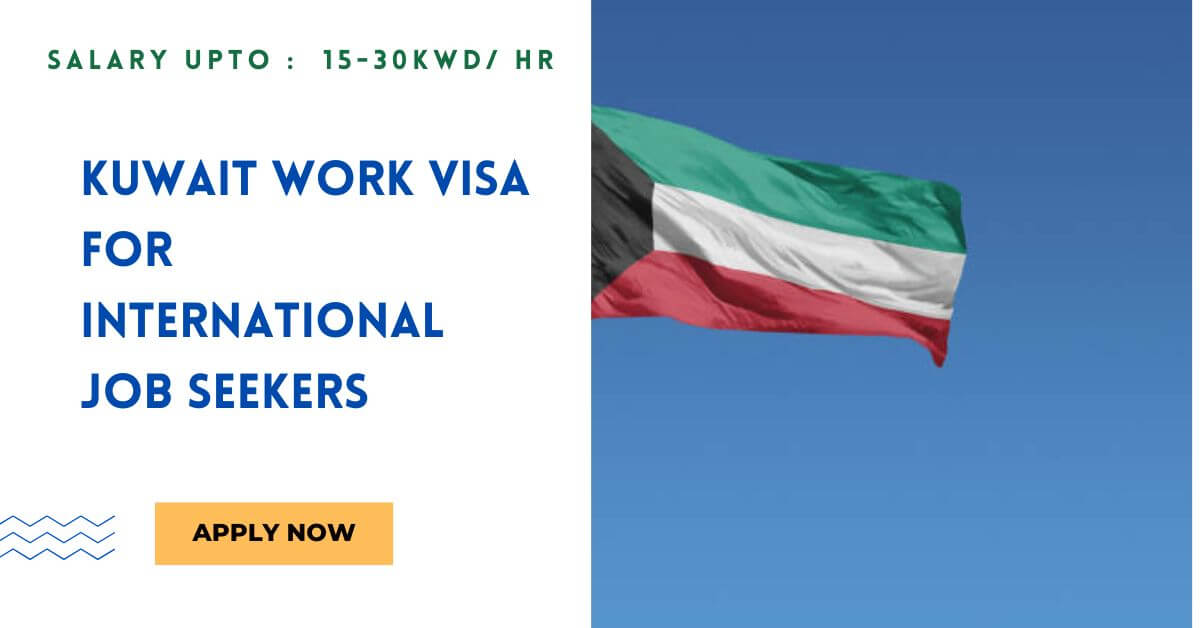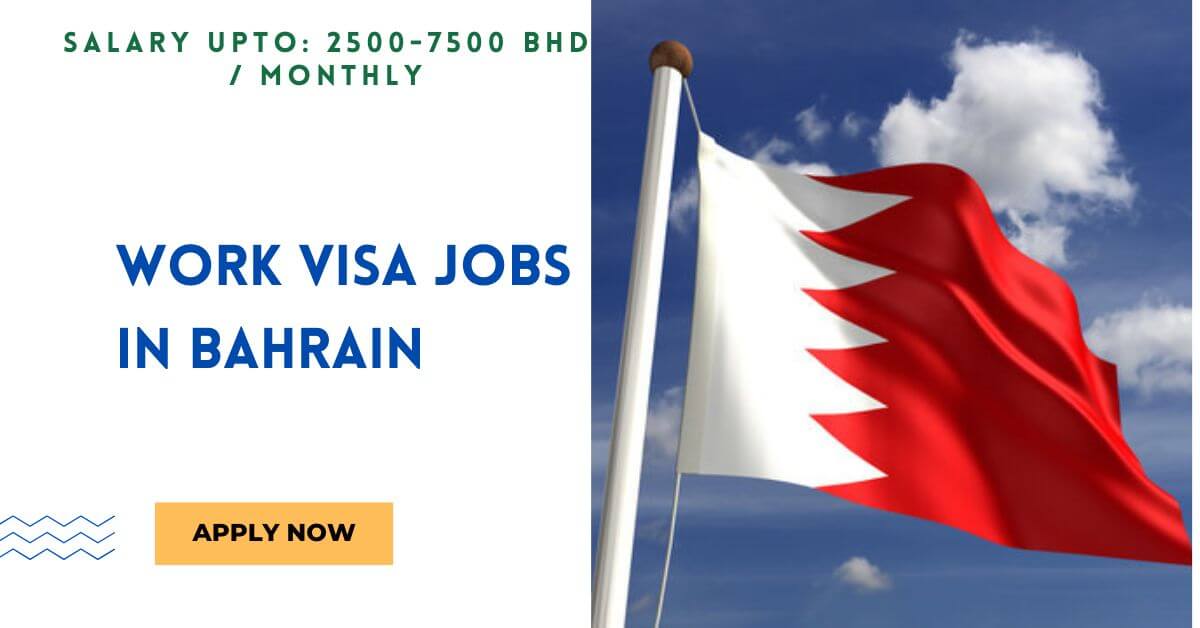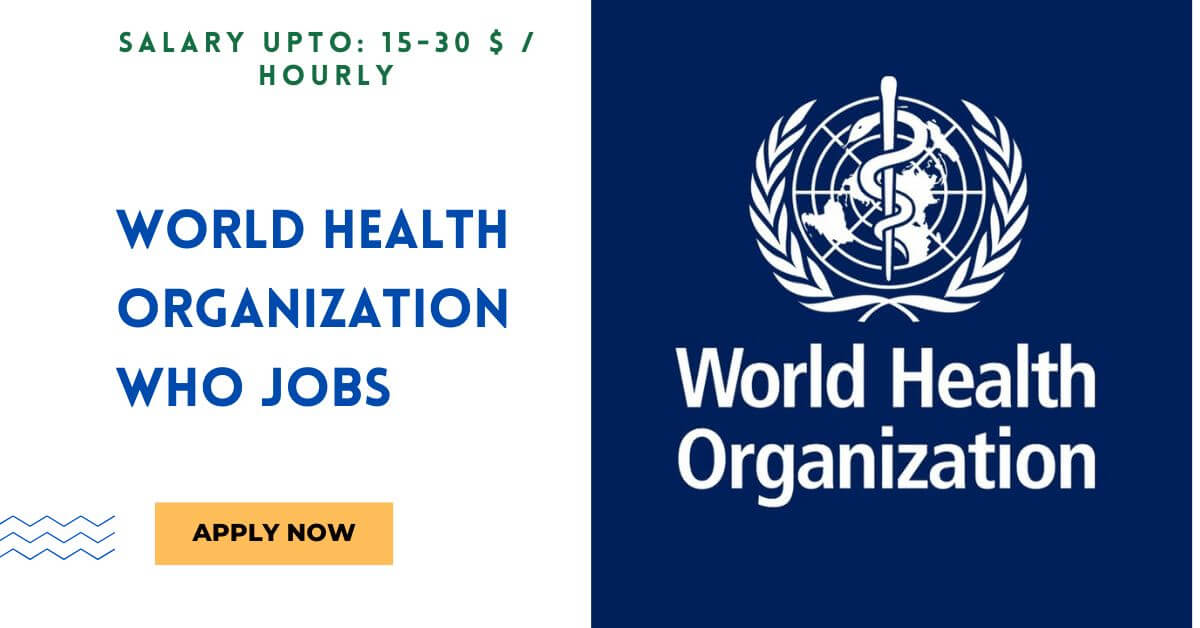Kuwait Work Visa for International Job Seekers 2025
Kuwait has become one of the most attractive destinations for international professionals, thanks to its rapidly growing economy, tax-free wages, and diverse job market. With an increasing demand for skilled labor, particularly in key sectors such as oil and gas, healthcare, information technology, and construction, Kuwait offers many opportunities for expatriates. This comprehensive guide provides essential information about the work visa process, benefits of living and working in Kuwait, the industries with skill shortages, and the practical steps you can take to pursue employment in the country in 2025.
Check Also: Labor Market Jobs in Kuwait With Work Visa – Apply Now
1. Work Visa Types in Kuwait (2025):
Kuwait offers a variety of work visa options depending on the nature of employment and duration of stay. Understanding the different visa types is essential for securing employment and complying with local regulations.
1.1 Kuwaiti Contract Work Visa (Up to 3 Years):
The Kuwaiti Contract Work Visa is one of the most common options for expatriates who have secured a job in Kuwait. This visa is typically issued for a period of one to three years, depending on the contract length between the employee and employer.
- Key Requirements:
- A valid employment contract with a Kuwaiti employer
- Medical and background checks
- Proof of qualification (degree/certification) relevant to the job
- Sponsorship by the employer
- Validity: The contract visa is typically valid for 1 to 3 years, depending on the employment contract terms. Renewal is possible upon meeting the conditions.
- Application Process: To apply, submit the required documents through the Kuwait embassy or consulate in your home country. The employer in Kuwait will provide a sponsorship letter that will help facilitate the process.
1.2 General Work Visa (1 Year):
The General Work Visa is granted to employees working under a short-term or temporary contract in Kuwait. This visa is particularly useful for those employed in sectors that require short-term or project-based engagements.
- Key Requirements:
- Employer sponsorship
- Health insurance
- Residence documentation
- Home allowance (if applicable)
- Validity: This visa typically lasts one year but can be extended depending on the terms of employment. You must renew it if you continue your work in Kuwait.
1.3 Kuwaiti Residence Visa (1 Year):
The Kuwaiti Residence Visa is designed for expatriates wishing to stay in Kuwait on a more permanent basis. This visa is often issued to individuals with ongoing work contracts or to those who have been employed in Kuwait for several years.
- Key Requirements:
- Proof of continuous employment
- Health insurance coverage
- Evidence of income stability
- Criminal background check
- Proof of housing accommodation
- Validity: This visa typically lasts one year, with the possibility of extension if the applicant remains employed and meets the requirements for renewal.
1.4 Student Visa (Duration of Academic Program):
International students looking to study in Kuwait can apply for a Student Visa. This visa allows students to stay in Kuwait for the duration of their academic program at a recognized Kuwaiti institution.
- Key Requirements:
- Proof of acceptance into a Kuwaiti educational institution
- Health certification and medical insurance
- Evidence of financial support (bank statements or sponsor)
- Duration: The visa is valid for the length of the academic program (typically one to four years). Extensions may be possible if the student continues their studies.
2. Benefits of Working in Kuwait:
Kuwait offers numerous advantages for expatriates, making it a highly desirable location for foreign workers. Here are some key benefits of living and working in Kuwait:
2.1 Tax-Free Income:
One of the most appealing benefits of working in Kuwait is the tax-free income. The government of Kuwait does not impose personal income tax, allowing expatriates to take home the full salary earned. This makes it an attractive destination for professionals, particularly those in high-demand industries such as oil and gas, healthcare, and information technology.
- Example: If you earn $5,000 per month in Kuwait, you would receive the full $5,000, as opposed to paying income taxes in other countries that could take a significant portion of your earnings.
2.2 Competitive Salaries & Benefits:
Salaries in Kuwait are often higher than those in many other Middle Eastern countries due to the country’s demand for skilled labor. Employers frequently offer competitive compensation packages that include housing allowances, health insurance, transportation, and performance bonuses.
- Example: A senior engineer in the oil and gas industry may earn upwards of $8,000 per month, with additional benefits such as housing allowance and annual leave.
2.3 High Standard of Living:
Kuwait offers a high standard of living with modern infrastructure, world-class healthcare, and excellent educational institutions. The country also has a variety of entertainment options, including malls, restaurants, and recreational activities, providing a comfortable lifestyle for expatriates.
- Example: Expats can enjoy luxury shopping, high-quality dining, and easy access to beaches and cultural events, making Kuwait an attractive place to live.
2.4 Safety & Security:
Kuwait boasts a low crime rate and a stable political climate, making it one of the safest countries in the Gulf region. The government’s commitment to maintaining security ensures a peaceful living environment for expatriates and their families.
2.5 Cultural Exposure & Networking Opportunities:
Working in Kuwait offers expatriates a chance to immerse themselves in the culture and traditions of the Arabian Gulf. This cultural exchange can provide invaluable personal and professional experiences. Additionally, Kuwait serves as a hub for networking, connecting professionals from various countries, which can help enhance one’s career opportunities.
- Example: The financial and oil industries in Kuwait attract professionals from around the world, allowing for networking with experts and gaining international exposure.
3. Key Sectors with Skill Shortages:
Kuwait is facing skill shortages in several key industries, creating ample opportunities for expatriates with the right qualifications. Some of the most in-demand fields include:
3.1 Healthcare:
Kuwait is experiencing a shortage of medical professionals, including doctors, nurses, and specialists. The country’s growing population and need for healthcare services have led to a rising demand for qualified healthcare workers.
- In-Demand Roles: Doctors (general practitioners and specialists), nurses, medical assistants, pharmacists.
3.2 Oil and Gas:
Kuwait’s oil and gas industry remains a major economic driver. The country needs skilled professionals, particularly in exploration, production, and refining.
- In-Demand Roles: Petroleum engineers, geologists, project managers, drilling engineers.
3.3 Information Technology (IT):
With an expanding digital economy, Kuwait is seeking IT professionals in various subfields such as software development, cybersecurity, and data analytics.
- In-Demand Roles: Software developers, cybersecurity specialists, systems analysts, network engineers.
3.4 Construction & Engineering:
The rapid infrastructure development in Kuwait has led to a demand for construction and engineering professionals. The government is focusing on expanding and modernizing the country’s infrastructure.
- In-Demand Roles: Civil engineers, project managers, architects, structural engineers.
4. How to Apply for a Work Visa in Kuwait:
The process for applying for a work visa in Kuwait generally involves several steps. Below is an overview of the key stages involved:
Step 1: Obtain a Job Offer:
Before applying for a work visa, you must first secure employment with a Kuwaiti employer. Your employer will act as your sponsor during the visa application process.
Step 2: Submit Documentation:
Once employed, your employer will submit your visa application on your behalf. You will need to provide the following documents:
- A valid passport
- Employment contract
- Proof of qualifications and experience
- Medical certificate
- Criminal background check
- Passport-sized photographs
Step 3: Medical Examination and Security Clearance:
You will be required to undergo a medical examination to ensure that you meet Kuwait’s health standards. Additionally, some employers may require a security clearance depending on the job position.
Step 4: Visa Issuance and Entry:
Once the visa is approved, it will be issued by the Kuwaiti Ministry of Interior. Upon receiving the visa, you can enter Kuwait and complete the residency registration process, which includes fingerprinting and obtaining a residence permit.
Conclusion:
Kuwait offers numerous benefits for expatriates, including tax-free income, competitive salaries, and a high standard of living. As demand for skilled labor continues to rise in sectors like oil, healthcare, and information technology, professionals in these fields will find ample opportunities. By understanding the visa process and benefits of living in Kuwait, you can make informed decisions about working in this thriving country.
Frequently Asked Questions:
Who is eligible for a visa to Kuwait?
If you are a resident of any of the GCC nations, including Saudi Arabia, Qatar, Bahrain, the United Arab Emirates, and Oman, you can apply for a Kuwait e-visa. Indian nationals with a residency card from any of the Gulf Cooperation Council (GCC) nations can also apply for an e-visa to Kuwait.
How can I apply for a work visa in Kuwait?
To be submitted at the Kuwait Visa Application Center in New Delhi:
Completed New Delhi Visa Application Center application form.
Visa original.
Original Police Clearance Certificate (PCC) (PCC must be attested by the Ministry of External Affairs – Patiala House, New Delhi).What is the maximum age for a work visa in Kuwait?
Expat workers beyond the age of 60 will not be granted a work visa or a resident permit. Kuwait has no formal working age limit, although foreign employees must be under 60 years old to be hired. You must be under the age of 60. The minimum age for obtaining a Kuwait work permit is 21 years old.









